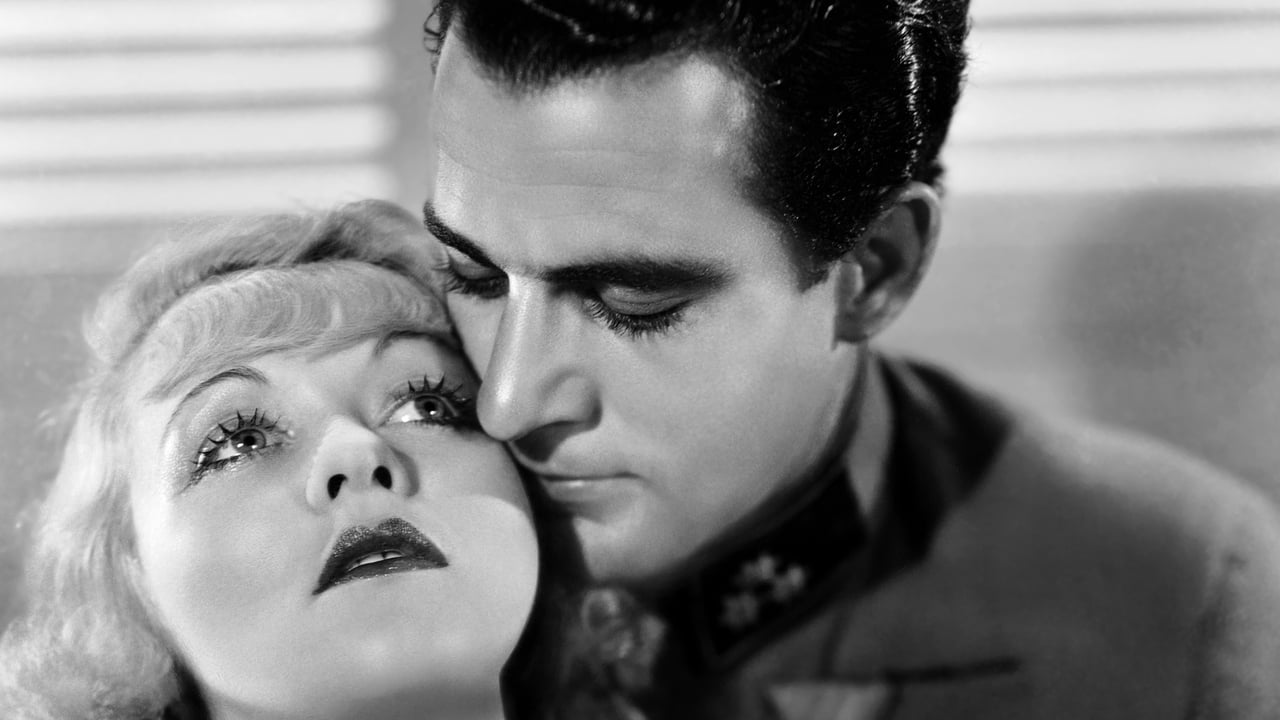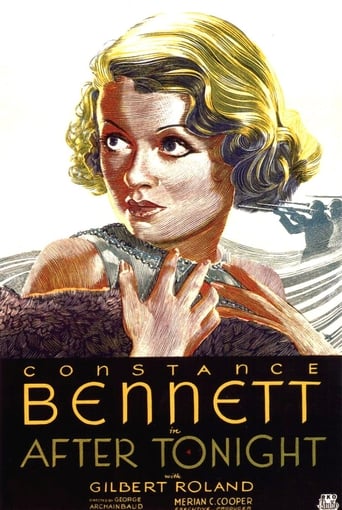BootDigest
Such a frustrating disappointment
StunnaKrypto
Self-important, over-dramatic, uninspired.
Doomtomylo
a film so unique, intoxicating and bizarre that it not only demands another viewing, but is also forgivable as a satirical comedy where the jokes eventually take the back seat.
Bob
This is one of the best movies I’ve seen in a very long time. You have to go and see this on the big screen.
MartinHafer
"After Tonight" is a rather heavy-handed and sappy love story--the type that, thankfully, died off a long time ago. Constance Bennett plays a Mata Hari-type woman. She's spying for the Russians during WWI and is posing as an Austrian nurse. Gilbert Roland plays an Austrian spy smasher--a guy whose job is to locate and liquidate spies like her. However, two VERY mismatched pair ends up falling in love. Now this is all a bit hard to believe and melodramatic, but it COULD have worked. However, at the end, when she is discovered, the film degenerates into a juvenile mess--where a silly tacked on happy ending occurs even though it defies logic and ruins the film with sickening sentimentality. Even if Bennett and Roland gave it their best, this poorly written film was destined to be a silly mess...which it is. If it sounds like I really, really hated the film, you are right--mostly because the ending left me feeling like I'd wasted my time.Incidentally, about a decade after this film, Bennett and Roland married. They didn't stay married, but they married.
lshelhamer
The idea of a spy falling in love with one of the enemy is a literary cliché and has been used in the movies since the silent era. It is full of dramatic possibilities, but always faces the difficulty of resolving in the end the contest between loyalty and love. In this film, the problems are compounded by having Mexican-American Gilbert Roland portraying the Austrian counterintelligence agent with his Spanish accent intact, up against the all-American Constance Bennett as a Russian spy during what appears to be WW1. The two gradually fall in love without knowing each other's true identity. Despite the obvious drawbacks, all involved carry it off very well.There are really two ending. The first, when they finally confront each other and reveal their true identities is dramatic, exciting and with a final surprising twist. The second is far-fetched and less satisfying. If you eliminate the final 5 minutes, the film is well-worth watching.
mukava991
I would rate this film as a competent time killer, something that Depression audiences went to see to forget about their troubles for an hour or so and which we small screen home viewers can watch to slip out of contemporary reality and give our brains a break. Constance Bennett occupies space attractively and goes through the motions of "acting" in her role as a coolheaded (and well dressed) spy operating behind Austro-Hungarian lines for the Russians in World War I. It's fun and intriguing to watch her collect and pass on her secret messages, all the while growing ever closer romantically to a spy-hunting Austrian military official (Gilbert Roland). An extremely contrived ending perfectly suits this confection.
pyamada
This is not a great film by any means, but is certainly worth seeing for the fine performance by Constance Bennett. The camera loves her and all the romance scenes play very well. Most viewers will find the ending kind of phoney but one has to assume that so much war time sex, romance and spying was more than the Code would allow, so a "wonderful coincidence" of an ending was almost a given!

